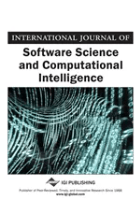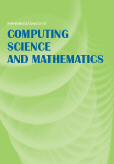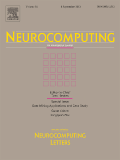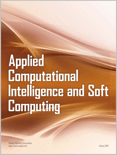
NEURAL COMPUTING & APPLICATIONS
Scope & Guideline
Charting New Territories in Neural Computing Research
Introduction
Aims and Scopes
- Neural Network Architectures and Applications:
The journal covers a wide range of neural network architectures, including convolutional neural networks (CNNs), recurrent neural networks (RNNs), and hybrid models, highlighting their applications in image processing, medical diagnostics, and more. - Machine Learning and Data Science:
It emphasizes the use of machine learning techniques for predictive analytics, classification, and data mining, showcasing advancements in algorithms and their implementation in real-world scenarios. - Optimization Algorithms:
The journal features research on various optimization techniques, including metaheuristic algorithms like genetic algorithms, particle swarm optimization, and their applications in optimizing neural network parameters and other engineering problems. - Cross-disciplinary Applications:
Research published in the journal spans multiple disciplines, including healthcare, engineering, finance, and environmental science, demonstrating the versatility of neural computing in addressing diverse challenges. - Explainable AI and Interpretability:
A focus on making neural network models interpretable and understandable for practitioners, which is essential for trust and usability in sensitive applications like healthcare.
Trending and Emerging
- Generative Models and Adversarial Networks:
There is a growing interest in generative models, particularly generative adversarial networks (GANs), for applications in image synthesis, data augmentation, and anomaly detection, indicating a shift towards creative and synthetic data generation. - Neural Network Optimization Techniques:
Research focusing on optimization techniques for enhancing the performance and efficiency of neural networks is on the rise, particularly in tuning hyperparameters and improving model architectures. - Real-Time and Edge Computing Applications:
As IoT and edge computing become increasingly relevant, the journal showcases applications of neural networks for real-time data processing and decision-making, emphasizing low-latency solutions. - Explainable AI and Trustworthy Systems:
The demand for explainability in AI models is rising, with more studies focusing on developing methods for interpreting neural network decisions, crucial for applications in healthcare and finance. - Interdisciplinary Approaches to Machine Learning:
There is an increasing trend towards interdisciplinary research where machine learning techniques are applied to fields like environmental science, healthcare, and social sciences, indicating a broadening of the scope of applications.
Declining or Waning
- Traditional Statistical Methods:
The focus on classical statistical methods has waned as more researchers adopt advanced machine learning and deep learning techniques, making traditional approaches less prominent in recent publications. - Basic Neural Network Models:
As the field advances, simpler neural network models have become less favored compared to more complex, hybrid, and specialized architectures that better address specific problems. - Theoretical Studies without Practical Application:
There is a noticeable decline in purely theoretical studies that do not address practical applications or real-world problems, as the journal increasingly favors research that demonstrates tangible impacts. - Single-Domain Focus:
Research that only addresses challenges within a single domain is declining in favor of multi-disciplinary approaches that integrate insights from various fields to solve complex problems.
Similar Journals

International Journal of Innovative Computing Information and Control
Transforming the landscape of theoretical computer science.International Journal of Innovative Computing Information and Control, published by ICIC INT, is a prominent platform dedicated to advancing the fields of computational theory, information systems, software engineering, and theoretical computer science. Since its inception in 2007, the journal has garnered attention for its rigorous peer-reviewed research and has established itself within the academic community, attaining a notable Q3 quartile ranking across its categories as of 2023. With an impressive track record of convergence from 2007 to 2024, this journal offers a wealth of insights and innovations for researchers and professionals striving to push the boundaries of technology and computing. While it operates under a subscription model, the journal's commitment to enhancing knowledge in the ever-evolving landscape of computational sciences makes it an essential resource for academics, providing timely articles that address contemporary challenges in the field.

International Journal of Automation and Computing
Advancing Innovation in Automation and ComputingInternational Journal of Automation and Computing, published by SPRINGERNATURE, is a premier academic journal dedicated to advancing knowledge in the fields of applied mathematics, computer science applications, control and systems engineering, and modeling and simulation. With an impressive impact factor and consistently ranked in the Q1 Quartile for its respective categories in 2023, the journal is recognized for its high-quality research and contributions to the automation and computing sectors. This journal provides open access to its articles, promoting the dissemination of innovative ideas and methodologies across a global audience. Based in China but serving an international community, the journal is key for researchers, professionals, and students looking to stay at the forefront of automation and computing technologies. Its rigorous peer-review process ensures that published works meet the highest scientific standards, making it an essential resource for those seeking to deepen their understanding and engage in cutting-edge research.

OPTICAL MEMORY AND NEURAL NETWORKS
Transforming Ideas into Optical and Neural SolutionsOPTICAL MEMORY AND NEURAL NETWORKS is a premier academic journal dedicated to advancing the fields of optical memory technologies and neural network applications. Published by SpringerNature in the United States, this interdisciplinary journal serves as an essential platform for researchers and professionals to disseminate findings and insights that bridge the gap between computer science, electrical engineering, and materials science. With an ISSN of 1060-992X and an E-ISSN of 1934-7898, it encompasses a wide range of innovative topics across its scope, which includes but is not limited to optical storage methods, neural network modelling, and the interaction of light with electronic materials. Though currently categorized in the Q4 tier across multiple relevant disciplines—such as computer science and electrical engineering—its commitment to quality research aims to enhance its standing in the academic community by 2024. Through rigorous peer review and an emphasis on novel contributions, this journal not only encourages exploration and development in emerging areas of technology but also seeks to support the educational needs of students and practitioners alike, fostering a collaborative environment for scientific advancement.

International Journal of Software Science and Computational Intelligence-IJSSCI
Catalyzing Collaboration in Software Science and Computational ResearchInternational Journal of Software Science and Computational Intelligence (IJSSCI) is a prominent academic journal published by IGI Global, dedicated to advancing the fields of software science and computational intelligence. With its ISSN 1942-9045 and E-ISSN 1942-9037, IJSSCI offers a platform for researchers, practitioners, and students to disseminate innovative research findings, theoretical advancements, and practical applications in areas such as algorithm development, machine learning, and software engineering. Although the journal currently does not operate under an open access model, its rigorous peer-review process ensures high-quality publications that contribute significantly to the academic discourse. Based in Hershey, PA, IJSSCI is recognized for its commitment to fostering collaboration among professionals in the technology and computer science fields, making it an essential resource for those looking to stay at the forefront of software science advancements.

Neuromorphic Computing and Engineering
Advancing the Intersection of AI and HardwareNeuromorphic Computing and Engineering, published by IOP Publishing Ltd, stands as a premier open-access journal dedicated to the interdisciplinary field of neuromorphic computing, which integrates principles of artificial intelligence and hardware architecture. Launched in 2021, this journal plays a pivotal role in addressing the surge of research in intelligent systems mimicking neurobiological architectures, thus fostering innovation across various disciplines, including electrical and electronic engineering and materials science. With an impressive Q1 ranking across multiple categories in 2023, including Artificial Intelligence and Hardware and Architecture, it attracts a global audience eager to explore cutting-edge developments. The journal is positioned to deliver high-impact research, evident by its Scopus rankings—particularly its notable standing in Electrical and Electronic Engineering (Rank #217/797) and Electronic, Optical and Magnetic Materials (Rank #80/284). Neuromorphic Computing and Engineering not only contributes to the academic discourse but also provides an accessible platform for researchers, professionals, and students to disseminate and discuss their findings, reflecting the critical advancements in this rapidly evolving domain.

NEURAL PROCESSING LETTERS
Exploring the Synergy of Neural Networks and Computing.NEURAL PROCESSING LETTERS, published by Springer, is a prestigious journal dedicated to the interdisciplinary fields of Artificial Intelligence, Computer Networks and Communications, Software Engineering, and Neuroscience. Established in 1994, the journal has built a solid reputation over the past decades, showcasing innovative research and developments that significantly contribute to the advancement of these dynamic areas. With a 2023 Scopus quartile ranking of Q2 in Artificial Intelligence and Computer Networks and Communications, and a Q3 ranking in Neuroscience, this journal occupies an important niche for professionals and researchers alike. The journal’s impact is further evidenced by its competitive Scopus ranks, positioning it within the top 60th percentile across its categories. Researchers looking for a platform to disseminate their findings in the intersection of technology and neuroscience will find NEURAL PROCESSING LETTERS an invaluable resource. For additional engagement and visibility, the journal supports various access options; however, it's important to note that it does not currently operate under an open access model. For submissions or queries, the journal can be reached at its headquarters in Dordrecht, Netherlands.

International Journal of Computing Science and Mathematics
Pioneering the Fusion of Computing and MathematicsThe International Journal of Computing Science and Mathematics, published by INDERSCIENCE ENTERPRISES LTD, is a pivotal platform for the dissemination of cutting-edge research in the intertwined disciplines of computing science and mathematics. With an ISSN of 1752-5055 and an E-ISSN of 1752-5063, the journal primarily serves the academic community engaged in applied mathematics, computational mathematics, theoretical computer science, and more, making significant contributions that resonate across various fields of technology and science. While the journal is currently categorized in the Q4 quartile for multiple related fields, including Applied Mathematics and Computational Theory, it continues to strive towards advancing the knowledge and practice within these areas. Spanning years from 2007 to 2010 and again from 2012 to 2024, the journal seeks to publish high-quality, peer-reviewed articles that not only address theoretical advancements but also explore practical applications of computing science in mathematical contexts, thereby fostering collaboration among researchers, professionals, and students alike. Please note that this journal is not available as Open Access, thus ensuring a curated content selection intended for dedicated research communities.

JOURNAL OF INFORMATION SCIENCE AND ENGINEERING
Transforming Ideas into Innovative Solutions.JOURNAL OF INFORMATION SCIENCE AND ENGINEERING, published by the Institute of Information Science in Taiwan, is a pivotal platform for the dissemination of innovative research in the multidisciplinary fields of information science and engineering. Established in 1993, the journal primarily focuses on areas such as library and information sciences, human-computer interaction, hardware and architecture, as well as computational theory and software development. Despite holding a current Q4 ranking in several categories, the journal demonstrates significant potential for growth, particularly in computation and software systems, as evidenced by its Scopus rankings and percentiles. Researchers, professionals, and students will find this journal to be an invaluable resource to stay abreast of evolving theories and technologies in information science. The journal is accessible through traditional subscription models, fostering a broad academic outreach. It serves to enhance knowledge-sharing and collaboration within this dynamic and ever-evolving field.

NEUROCOMPUTING
Exploring the Intersection of Mind and MachineNEUROCOMPUTING is a premier academic journal published by ELSEVIER, specializing in the interdisciplinary fields of Artificial Intelligence, Cognitive Neuroscience, and Computer Science Applications. With an impressive impact factor and a Q1 ranking in its relevant categories for 2023, NEUROCOMPUTING is recognized as a leader in fostering innovative research and providing a platform for ground-breaking studies. The journal’s scope covers the convergence of neural computation and artificial intelligence, making it essential reading for researchers and professionals seeking to explore the latest advancements and applications in these dynamic fields. For those interested in the cutting-edge intersection of neuroscience and computational techniques, NEUROCOMPUTING offers a wealth of knowledge that significantly contributes to both theoretical and practical advancements. The journal is dedicated to publishing high-quality, peer-reviewed articles and is an invaluable resource for students and established scholars alike, looking to stay at the forefront of research trends.

Applied Computational Intelligence and Soft Computing
Elevating Engineering with Computational InsightsApplied Computational Intelligence and Soft Computing, published by HINDAWI LTD, is a premier open access journal that has been disseminating critical research since 2009, focusing on the intersection of artificial intelligence and soft computing. With an impressive array of quartile rankings in 2023, including Q2 in Civil and Structural Engineering and Computational Mechanics, this journal has established itself as a significant contributor to the fields of computer science and engineering. Based in Egypt, it plays a vital role in advancing knowledge by providing researchers, professionals, and students with easy access to high-quality studies. The journal’s rigorous peer-review process ensures that only the most impactful research is highlighted, making it an essential resource for those looking to stay abreast of the latest innovations and methodological advancements in applied computational intelligence. Its Scopus rankings further affirm its influence and reputation within the academic community, exemplifying its commitment to facilitating collaboration and fostering intellectual discourse in various scientific domains.